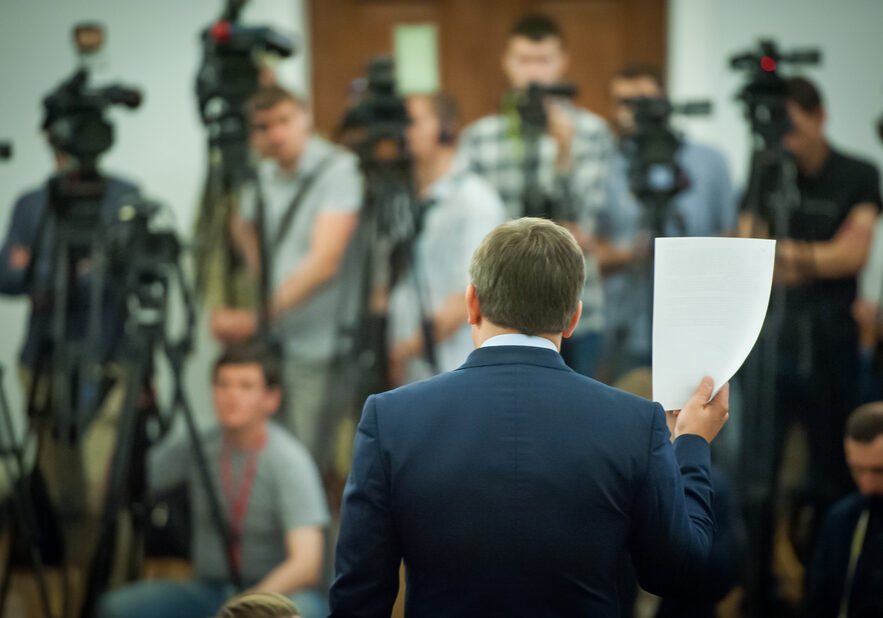Eight years ago, I sat in a room and listened to a scientist tell a story. Let’s be honest, that can go two ways.
A brilliant medical director speaking to a room with zero scientific understanding, and that included me! Most of the audience had never heard of him, his specialties, his achievements or any of the amazing places he had worked. The speaker and his audience were truly worlds apart.
Never the less he gave a speech that commanded absolute attention from the start and left many in tears. It undoubtedly left its mark on many more, as the audience recounted it to their own networks, just as I am now doing nearly a decade later. It was a masterclass in how to take an audience along with you.
The storyteller was Jonathan Carapetis. Without question, a leader in his field but also a master communicator. He had just taken over as Director of the Telethon Kids Institute and was speaking to a room of visiting celebrities and local TV staff and volunteers. Most were young and drawn across the Nullarbor for the party that is Telethon. Jonathan left no uncertainty about what they were here for. The difference they could truly make.
Jonathan told us a story about a little girl; perfect and the light of her parents’ lives. He told us her name, what she liked doing and what a loving family she came from. He made us know her and think of the kids we knew just like her. But then he told us about how her mother noticed she started missing developmental milestones. After seeing dozens of doctors the only thing her parents knew was that their little girl was perfect in every way but one; she had a condition that meant she would not only stop meeting milestones she would in fact keep regressing until she lost many of the skills she had learned since birth. But despite all the tests they didn’t know why – they couldn’t give her a diagnosis – or whether the same thing might happen to her other children.
He had the room. There was complete silence and plenty of tears.
He then told us that thanks to the work of the institute he now led they were able to find the cause of this little girl’s problem – it was a tiny mutation in one of tens of thousands of genes. And even better, they were able to use this information to find a potential treatment, a possible cure. Not only could this girl be helped, but other parents around the world could be spared the same anguish.
The impact of this was huge.
Its not easy making an audience from outside your field get it. It doesn’t come naturally. There are lots of ways that media and communication training specifically for scientists, academics and researchers can help. Telling a story is just one.
Stories are emotive, relatable and memorable. A story about a real person in a real situation and a real-world result gets the audience onboard early. It also delivers what you have to say in a logical way we all can follow no matter what our background.
I can’t remember the name of the condition suffered by this little girl, whose name now escapes me. If that was Jonathan’s objective, I guess he failed. But he knew what he was trying to do.
I will never forget how his story made me feel; proud to have an institute with scientists doing such amazing work in my home town, acutely aware of the impact it was having around the world and the vital importance of funding and promoting its work. It made me care, exactly as Jonathan intended it to.
What’s your story? How do you make people care?
Written by
Why train with ThinkBox?
At ThinkBox Media we believe in Strategic Customised Training. This means your training will be developed specifically for you; your industry, your concerns, your real scenarios.
A mining executive is not likely to face the exact same issues as a doctor, a government minister or a not-for-profit organisation. One Size fits all trainings do not work.
Some people need a lot of time to improve their performance, others get stuck on the messaging. Many bigger companies already have some bases covered by their own comms teams freeing up more time to focus on the practical skills.
Often a one-on-one training in required, other times small or larger groups may provide a more cost effective option for a team.
We know you’re results driven and so are we!
Not sure what you need? We can help you.
We have been asked a lot of questions. Many of them about where to start. So we have created a comprehensive FAQ's section to help you navigate the journey.





